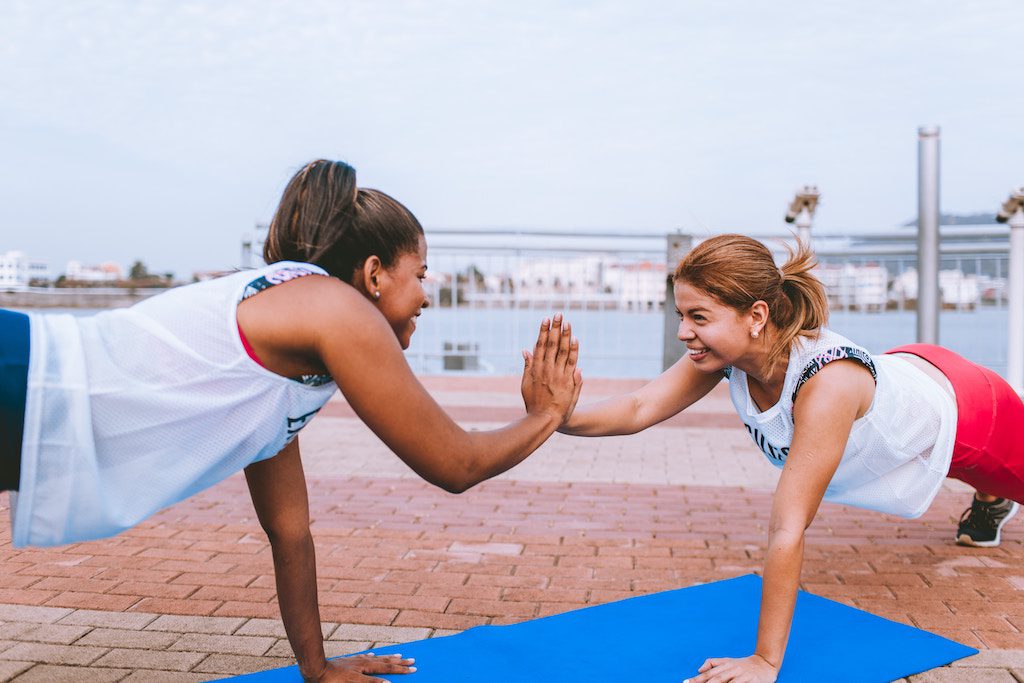Skift Take
The world of wellness is filled with overpriced products and services that unfortunately tend to exclude most people, whether racially or socioeconomically. We welcome more companies offering high-quality products that bring underrepresented groups into the picture, even if profits are sacrificed.
 The Skift Wellness newsletter is our weekly dispatch focused on what’s happening in wellness from a global business standpoint. Skift Wellness lives where wellness meets commerce, mindfulness meets technology, the yoga studio meets the boardroom, and health meets business.
The Skift Wellness newsletter is our weekly dispatch focused on what’s happening in wellness from a global business standpoint. Skift Wellness lives where wellness meets commerce, mindfulness meets technology, the yoga studio meets the boardroom, and health meets business.
A common (and well-deserved) criticism about the wellness industry is that the majority of products and services out there are geared to those with money to spend and time to spare. As Dr. Shari Auth, co-founder of WTHN, a buzzy New York acupuncture studio, noted, “So many of the tenets of wellness aren’t expensive at all, like taking a walk, rest, meditation. But as it became trendy, wellness started becoming a luxury space.”
It has also become an incredibly white space. Want proof? The vast majority of wellness social media influencers are young, thin, and white. Yogis in digital stock photos also tend to be young, thin, and white. But as the wellness industry matures, there are attempts to make it more gender-neutral and socioeconomically and racially diverse.
New companies like Brandless and Public Goods are springing up with a variety of affordable healthy product lines, while niche players like Black Girl in Om and Undefined Beauty cater to women of color. And HealHaus, a wellness center in Brooklyn, fills the need, according to its owners, “for an inclusive and accessible wellness space where everyone can see themselves reflected,” including men and women of color.
Even mainstream media is tackling the inclusivity gap. Fitness magazine SELF has been a pioneer in its efforts to highlight more diversity on its pages and behind the scenes. And certainly, during the past few years, the faces on the covers of fashion magazines (finally) more accurately reflect the world at large.
What’s behind the shift? Cynically, one could say that diversity is in, and everyone’s just trying to make a buck. But beyond making profits, many up-and-coming leaders of this new wellness space seem more concerned about bucking the system and promoting social good. Some donate proceeds or products to charity, some actively work to advance social justice, and others bring products and services to underserved communities.
Still, however it manifests, today’s savvy wellness brands know that doing good is not an end in itself — it also looks good for the bottom line.
For feedback or news tips, reach out via email at [email protected] or tweet me @dailysuitcase.
— Laura Powell, Skift Contributor
Beauty & Spa
Bridging the Gap Between Beauty and Social Justice: Dorian Morris has a big mission. As the CEO of Undefined Beauty, she’s looking to alter the perception of clean beauty and destigmatize the use of cannabis, particularly among black women. She’s also making a point to use her business to invest in social justice issues that impact her community. It’s a lot to take on, but the wellness industry could certainly use the shake up. Read more here.
Food & Drink
Plant-Based Meats Meet Wall Street: Last week, we reported on the growing interest in plant-based hamburgers. Now, one of the biggest players, Beyond Meat, is getting ready to sell shares. Seems like investors might have beef putting money into a company that’s losing $30 million a year. But with the market for plant-based meats skyrocketing, maybe Beyond Meat will be the unicorn that gives cows a break. Read more here.
Beer Tries to Tap Athletes: Sensing a gap between plain old water and Gatorade, marketers have been trying to convince us that everything from chocolate milk to expensive, enhanced water is the cure for the post-workout blues. Now, beer is being touted as the next big recovery brew. Come on now, just eat a banana. Read more here.
Health
Pedaling Healthier Lifestyles, 2 Wheels at a Time: In the U.S., we have Mayor Pete. In the Netherlands, they have Mayor Pedal. The idea of a bicycle mayor — an unelected person serving as a connecting point between city departments, nonprofits, and bike advocates — started in Amsterdam (naturally) in 2016 and has since spread around the world. Beyond providing a low-impact and inexpensive transportation alternative, these “mayors” believe bikes can improve the health of the citizenry and provide opportunities in education and employment. Read more here.
Vitamins & Supplements
Why Taking Your Vitamins Is Now Cool: Many things dubbed “wellness” are goods and services that have been around forever, dressed up in new packaging with millennial-friendly marketing and social media savviness. Such is the case in the vitamin industry, where once-boring daily pills now come via personalized subscription services, designed with Instagram in mind. Read more here.
Travel
Beauty Brands Make Over Airport Retail: Travel retail, which consists of airport, cruise, and duty-free shopping, is becoming a high-growth sector for the beauty business, strengthened by the rise of Asian travelers. Brands such as Nars, Guerlain, and Shiseido have invested in their travel retail strategies in response and are leading the way for innovation in the space. Read more here.
Skift Contributor Laura Powell [[email protected]] curates the Skift Wellness newsletter. Skift emails the newsletter every Thursday.
The Daily Newsletter
Our daily coverage of the global travel industry. Written by editors and analysts from across Skift’s brands.
Have a confidential tip for Skift? Get in touch
Tags: diversity, diversity and inclusion, Skift Wellness, wellness
Photo credit: Aas the wellness industry matures, there are attempts to make it more gender-neutral and socioeconomically and racially diverse. @jibarofoto / Unsplash

